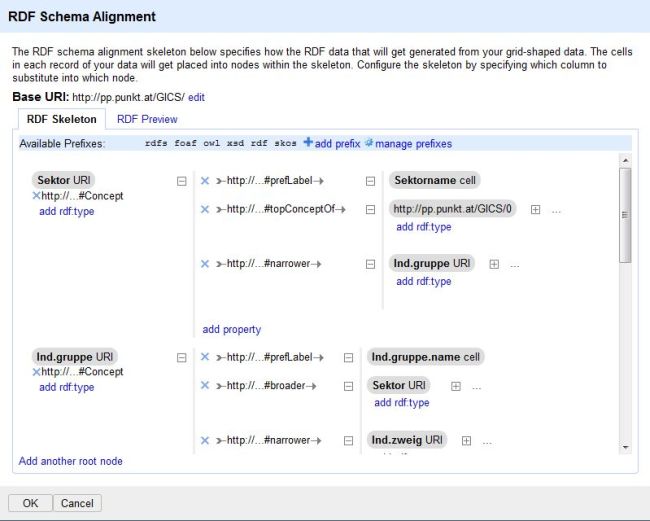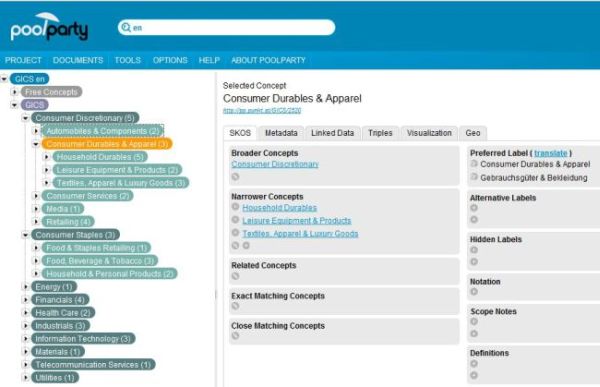Learn more
- Feb 17, 2011
Transforming spreadsheets into SKOS with Google Refine
Looking for high quality enterprise vocabularies we recently turned our attention to the Global Industry Classification Standard (GICS), which is an industry taxonomy designed to categorize any private company. It was developed by Morgan Stanley Capital International and Standard & Poor’s and is mainly used by the global financial community to aid in the investment research process.
It is available for download as .xls spreadsheet files in several languages. Of course it would be much better to have this valuable taxonomy in a standard and machine-readable format. The Simple Knowledge Organization System SKOS is a perfect fit for a taxonomy like GICS. But how to turn a spreadsheet into SKOS with minimal manual effort?
I chose to try Google Refine for this task, as recently a promising RDF extension had been released by DERI‘s Fadi Maali and Richard Cyganiak.
Google Refine is “a power tool for working with messy data, cleaning it up, transforming it from one format into another, extending it with web services, and linking it to databases”. Previously it was known as Freebase Gridworks which is now further developed by Google since its acquisition of Metaweb.

Refine is a very useful tool to filter and consequently transform rows, colums and cells according to customizable patterns.
After applying all necessary transformations to the spreadsheet one can edit the “RDF Skeleton”, where the columns can be mapped to literals, RDF properties and RDF classes (which can be imported from their namespaces).

Once you got your valid SKOS model ready you can export it in RDF/XML or Turtle format. Then you may want to load it into an ontology editor like Protégé or a thesaurus management tool like PoolParty in order to build upon it or connect it to other knowledge models. With PoolParty the GICS taxonomy can also be utilized to tag and categorize documents, provide semantic search and facetted navigation and it can be published as Linked Data without further effort.

Working with Refine and its RDF extension was easy and fun. It’s even possible to isolate and save the transformation steps done with Refine, so one can re-apply them on similar structured spreadsheets. This came in very handy as GICS is published in nine languages and as many separate, identically structured spreadsheets.